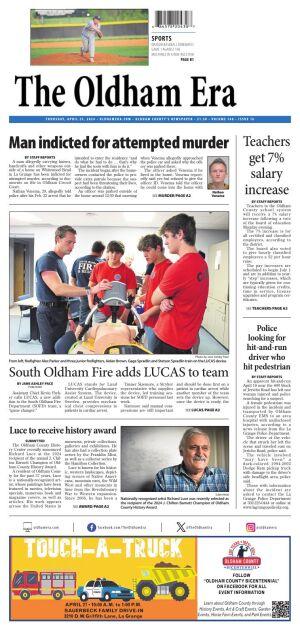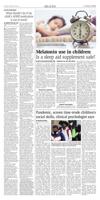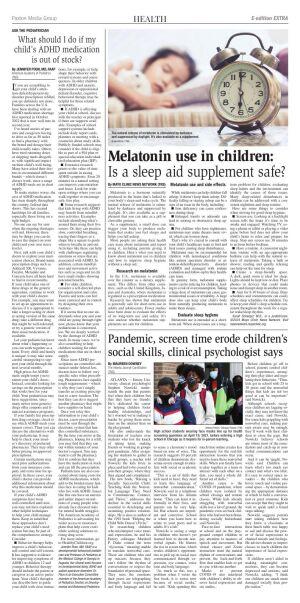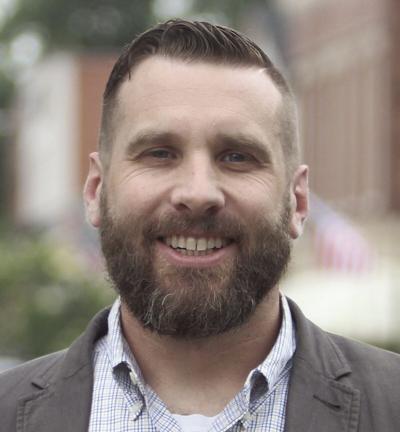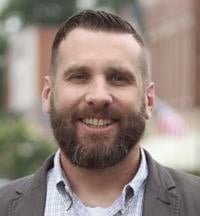The year 2016 was an election year, and a particularly contentious one at that.
Americans went to the polls that fall and made the choice between Hillary Clinton, Donald Trump or any number of alternatives that had no realistic chance of winning.
Trump won, and the vitriolic strife characterizing American politics has only increased in the eight years since.
I remember one article that came out in September of that year. Michael Anton, borrowing an analogy from Sept. 11, 2001, called that year’s election the “Flight 93 Election.” In case you don’t remember, Flight 93 was the hijacked plane heading for Washington, D.C., that never hit its target because courageous passengers decided to charge the cockpit and fight back.
Anton wrote, “2016 is the Flight 93 election: charge the cockpit or you die. You may die anyway. You — or the leader of your party — may make it into the cockpit and not know how to fly or land the plane. There are no guarantees. Except one: if you don’t try, death is certain. To compound a metaphor: a Hillary Clinton presidency is Russian Roulette with a semi-auto. With Trump, at least you can spin the cylinder and take your chances.”
This kind of catastrophizing discourse has become standard in American culture. Politicians and media outlets seek to motivate particular action by leveraging our universal fear of catastrophe. If you don’t act in this certain way, they shout, then the worst outcome imaginable is going to occur. Do this or else. It’s the reason why every presidential election of my adult life has been labeled by someone as “the most consequential election in our nation’s history.” Human beings respond to fear. If a person can be convinced that the threat is serious, he or she will likely take the recommended action.
However, Christians should not be motivated by fear of catastrophe, and I want to share a couple reasons why.
First, Christians live by a different standard. “Do not be conformed to this world,” Paul pleads in Romans 12:2, “but be transformed by the renewal of your mind.” There is a way of living that seems right in the world. It’s obsessed with power and control and autonomy. It pits human beings against one another in a zero-sum game of competition. Your side must lose so that my side will win. It motivates action through appeal to the worst features of human nature — our fears and our lusts and our pride. However, as Proverbs 14;12 reads, this way’s “end is the way to death.”
By contrast, Christians are definitionally people who follow Christ. We don’t base our decisions in elections, or anywhere else in life for that matter, on catastrophizing narratives. Instead, we follow Jesus, the one who “came not to be served but to serve” (as Mark 10:45 reads).
We make our life choices according to what our King has revealed to us. We live in this fallen world according to the Kingdom values of truth, goodness and beauty. This means that we refuse to celebrate sin as righteousness just because doing so advances a pragmatic goal. We hold our leaders accountable to a basic standard of decency and character. Christians must be people who live according to uncompromising convictions about truth, not people who are willing to compromise convictions to avoid some imagined future catastrophe.
Second, Christians, of all people, should recognize that catastrophe is never the end all. As commentators wax on about the dire panic of a Flight 93 election, we cast our gaze upon the invisible God who Psalm 2:4 says “sits in the heavens and laughs.” Not only is God in complete control of history, but he also uses the very catastrophes we most fear to further his perfect purposes, purposes that include the ultimate flourishing of his people. What Joseph’s brothers did to him was certainly catastrophic. However, God used that catastrophe to place Joseph in a position to ultimately save his people. Over and over in the Bible, we see God turning tragedies into triumph and catastrophes into conquest. The most catastrophic event in history — the crucifixion of the sinless Son of God — turned out to be the very means through which we are saved.
God does not grant us the privilege of knowing the future. However, he does allow us to have knowledge of the past, and when we look back, we see a God who providentially guides the course of history toward his appointed end. As people who hope in Christ, we must not allow fear of future catastrophe to cause us to compromise what we know is right and true.
Catastrophe may indeed visit our lives or our nation, but the purposes of God will never be overturned. This Easter, may we remember that sometimes Christian faithfulness means embracing temporary defeat.
Defeat, however, is always temporary for Christ’s people. The resurrection follows the cross.


